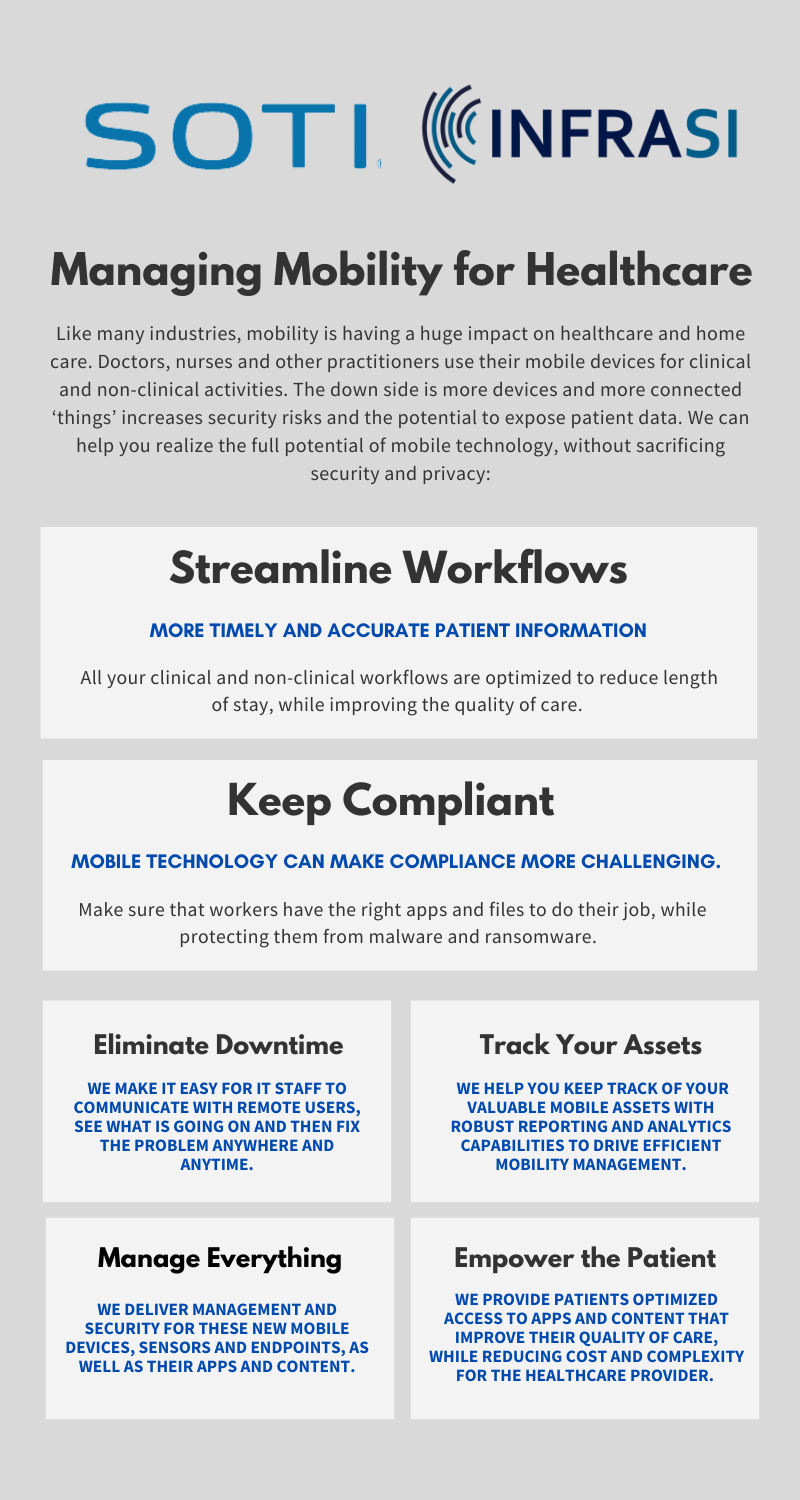Technology is embedded in everything we do. This is no different within healthcare and life sciences. While healthcare has witnessed a great deal of technological advancement, it has never truly embraced it the way some other industries have. Issues of data security, technical challenges, and lack of awareness associated with healthcare mobility solutions hinder its momementun and growth. A prime example is the urgent care segment of the healthcare industry.
According to Consumer Reports, there are over 9,000 urgent care clinics in the U.S. The digital transformation of urgent care has the potential to radically improve the ability for doctors, hospitals, and organizations to treat patients and help them live longer, healthier lives. Solutions providers have the opportunity to meet urgent care needs of today to adapt to a post-COVID-19 world and lay the groundwork for innovation in the future. For it to happen, urgent cares must work with an expert partner able to supply the required skills, technology, data expertise and device-agnostic integration to address these 3 major challenges:
- Challenge #1 - Processing and Analysis of Data - many urgent care providers find themselves facing challenges due to the lack of interoperability between technologies designed to streamline workflows and improve patient care. Using systems that are not properly integrated causes pain points across all aspects of the patient care experience. For patients, the seamless exchange of data through healthcare interoperability meets their expectation for convenience by giving them easy access to their full medical history. It enables them to be more active in their own care and achieve continuity of care across all their providers.
- Challenge #2 - Skills Gap - when it comes to any form of technology, the end user must be taken into consideration in order to produce a product or service that is easy to use. Urgent cares must invest in continuous learning, of not only healthcare skills, but technological skills as well.
- Challenge #3 - Security and Compliance - as the footprints of care organizations expand beyond hospitals and medical campuses, so does their attack surface. The potential losses incurred by an organization are not just financial, there is also considerable loss of patient trust and reputation. Meeting HIPAA and regulatory standards is a significant challenge — further complicated by cybersecurity threats that have grown more numerous and sophisticated during the pandemic. Many senior healthcare leaders now understand that the growing interconnectivity of their devices, business partners and health systems make cybersecurity everyone’s concern – and everyone’s responsibility.
What to Consider When Starting a Mobility Program in Urgent Care
Launching a clinical mobility initiative requires a unique outside-in approach that addresses current hurdles and keeps the safety of users (and their data) at the forefront. Urgent care leaders should define the outcomes they’re looking to improve and confirm that existing clinical mobility platforms and investments are fit to achieve it. Irrespective of how well-designed and deployed your clinical mobility solution is, if it fails to connect with the systems present in the organizations, the problems in terms of high operational cost and low adoption rate will only worsen. Thus, it is very important to partner with an agency that specializes in the modernization of a legacy system.

Why Infrasi?
As a partner, our intent is to aid in the sustainment and reimagined healthcare operations that utilize a modern mobile and cloud-enabled infrastructure. In supporting this change, we see opportunities to create digital health solutions that enhance patient care.
Discover how INFRASI can support your healthcare and life sciences business. Schedule your complimentary discovery call today.
